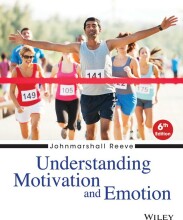Personal Control Beliefs
5 important questions on Personal Control Beliefs
Two ways to conceptualize expectancy motivation
- Through interactions of person, behaviour and outcome
- Through self, action and control
Personal behaviour history
Pessimistic explanatory style
- Higher grades + faster learning
- Never study anything twice
- 100% sure, 100% understanding
Optimistic explanatory style
Integrated model of reactance and learned helplessness
The question on the page originate from the summary of the following study material:
- A unique study and practice tool
- Never study anything twice again
- Get the grades you hope for
- 100% sure, 100% understanding
































